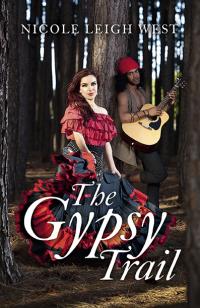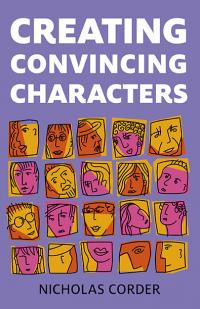
 Look around you. What does your life contain? Home, family, children,
grandchildren, eating out, good health, holidays abroad? Or maybe it’s not so sunny and your life includes relationship issues, a lack of a decent holiday, imminent surgery and a clapped out car.
Wherever you are in your life, whatever you are experiencing, you can turn your life stories into saleable articles for the lifestyle market. People want to read other people’s stories. Humans are
fascinated by other humans; what they’ve got, what they are doing, where they are doing it and whether we can do it too! The Oxford Dictionary describes ‘lifestyle’ as the way in which a person
lives. Well, that should provide us with many an idea! Lifestyle magazines include everything from the home and interiors, fashion and beauty, food and nutrition to health and well-being;
parenting, childcare, travel and days out are covered too.
Look around you. What does your life contain? Home, family, children,
grandchildren, eating out, good health, holidays abroad? Or maybe it’s not so sunny and your life includes relationship issues, a lack of a decent holiday, imminent surgery and a clapped out car.
Wherever you are in your life, whatever you are experiencing, you can turn your life stories into saleable articles for the lifestyle market. People want to read other people’s stories. Humans are
fascinated by other humans; what they’ve got, what they are doing, where they are doing it and whether we can do it too! The Oxford Dictionary describes ‘lifestyle’ as the way in which a person
lives. Well, that should provide us with many an idea! Lifestyle magazines include everything from the home and interiors, fashion and beauty, food and nutrition to health and well-being;
parenting, childcare, travel and days out are covered too.
What is Lifestyle Writing?
Lifestyle writing focuses on the things that are important in our lives. From raising children, dealing with health issues and being pregnant to decorating your home, managing a city garden and where to go on holiday; writing for the lifestyle market encompasses the aspects of our lives that we can share with other people.
You’ll never be short of ideas when you are a lifestyle writer. Everything you do or have done has the potential to be a lifestyle article. If you get stuck for ideas, just talk to your friends and family. What experiences have they had that you could draw upon to write a lifestyle article? Ideas are all around you. Start looking out for them! Lifestyle writing is one of the easiest markets for a writer to get into, mainly because first person view-point is often used. This means you can tap into your own experiences to begin your writing career. There are hundreds of magazines that publish lifestyle articles on a weekly basis who eagerly await freelance writers to send in their stories.
The first article I ever sold was about the differences between the births of my two sons. It started as simply as ‘Jake, my firstborn son, was born in a hi-tech hospital in Northern Ireland...’‘ (Your New Baby, 1997). That one article for a parenting magazine led to many more life-style articles for the same magazine and their website. I began my writing career by writing about pregnancy, child-raising and how to survive as a parent when my children were young. What has affected your life recently that could make a good article?
And what has happened in your past that you could draw on for another interesting article? My latest article was also written from a first person viewpoint and examines my recent foray into making home-made wine. I grew up in a household that produced the most amazing wines from next to nothing and I used this as an introduction to the article.
‘My grandparents made home-made wine. They made it from anything and everything: grapes, potatoes, marrows, tea - you name it, they tried it. They started making it during the Second World War and carried it on for many years. As a child I helped pick the grapes and crush them between my tiny toes. Not in a Greek vineyard but in the back garden of a small house in London. We were reared around wine: the smells, the process and later on, the taste.’
(BackHome magazine, 2012).
When you begin to look at your own life experiences, you will realise that you have just so much to write about. And not just that, but experiences that can help inform, instruct, advise and support your readers too.
Potential Markets
A market is a term used to describe where you can sell your work. So it’s not the fruit and veg kind but each magazine, website or publisher is a market where writers can sell their lifestyle articles. There are so many markets out there from magazines and newspapers to websites and e-book providers that it would be impossible to list them all. Lifestyle markets are everywhere, from local publications like Parish journals and community newsletters to national magazines and newspapers and on to global book publishers.
It is estimated that there are 3,300 magazines in the UK and over 10,000 in the US. Magazines are published weekly, sometimes monthly, so that’s a huge market looking for writers to fill their pages on a regular basis. And you don’t have to just write for magazines in your own country. I live in Ireland and I’ve sold articles to magazines in the UK, America and Canada so the world really is your market. The best guides for up-to-date information on potential markets are The Writers’ and Artists’ Yearbook and the Writer’s Handbook (UK) and the Writer’s Market (US). They contain lists of magazines, newspapers and publishers that you can submit your work to.
There are also over 644 million websites on the Internet - someone had to write them! Okay, they may have been initially developed by a computer tech somewhere but they still need writers to produce new articles, web-site content and blogs for them. Websites are constantly changing, regularly being updated and they need writers to keep them going. Web writing and blogging about lifestyle subjects can be a lucrative market for writers.
Depending on where you find your information, the book industry is stable, unstable or in dire jeopardy. The event of the ebook has changed the face of publishing and there is a huge debate raging about whether this spells the demise of the printed word. I think there will always be a place for both print and ebooks and that place will continue to have many lifestyle titles. As well as mainstream book and e-book publishers, the Internet has led to the production of many self-published works. As a writer this means you can produce a book about literally anything and have it available to download directly from the Internet. So if you write a lifestyle book, there will always be a market for it, whether you do it yourself or are contracted to write it.
Why Become a Lifestyle Writer?
Why not? There are many opportunities to see your work in print and earn an extra income from your writing. You don’t have to commit to writing a book if you don’t want to, you can start writing smaller pieces before moving on to bigger things. You can give lifestyle writing as little or as much time as you have available while still building up a portfolio.
Say you have an idea for a book, if you were writing a novel you would have to complete the whole manuscript before approaching publishers. That’s a year; at least, of your time with perhaps nothing to show for it (I’m looking on the negative side here). A lifestyle book, however, starts with a proposal. That will take a few weeks to put together depending on whether the publisher wants one, two or three chapters to go with it but the lifestyle book is commissioned on the basis of that proposal. You don’t need to take a year out of your life to write something that may never sell. A lifestyle editor will tell you on the basis of your proposal whether you have a good idea or not. A lifestyle book writer will receive a contract before they have completed the entire manuscript. Your energies and time will not be wasted. If your proposal is no good then you can think of a new idea and try again.
It’s the same with articles. A magazine will be looking at features of 1,000 words plus. It’s only going to take you a few weeks at most. Once it’s in the post or emailed, you start another and your productivity level increases. Web articles can be as little as 250 words. That’s not going to take long to write is it? A lifestyle writer can be writing all lengths of factual, informative pieces in a short space of time.
I started my writing career by sending in letters to the editor, tips for advice columns and writing snippets of local news for a community newsletter. I graduated on to writing articles for several magazines. I’ve written on everything from parenting to wine-making. With the event of the Internet, I started writing for websites and am now a published author. Lifestyle writing can really take you on a journey of many different projects. And it doesn’t matter who you are or where you are, what age you are or what your background is. Writers are a mixed bunch of people. You don’t have to be an academic to write about life, everyone has life experiences to draw upon and turn into a saleable article. You don’t have to have a posh home to write about interiors or the latest Lamborghini to write about cars; you just need a passion for writing.
If you have hobbies or interests, are a mother or a father, work in a certain industry or are studying for a career, you have life experience that will make interesting articles and lifestyle books. Whatever you do in life has the potential to be turned into a piece of lifestyle writing. So there’s no excuses - you can write for the lifestyle market!
But Do I Need Special Skills?
Not at all. Writing skills improve as you use them; the more you write, the better you will become. You will need a good level of English to start with and the ability to send in copy that is error free. This might mean going back to the grammar books or punctuation guides to refresh your knowledge of English usage, but these days you can find fun quizzes to test your skills on the Internet or easy to understand books like Lynne Truss’s Eats, Shoots & Leaves that will update your skills.
Once you have covered the basics, you are ready to write for any publication. Lifestyle writers do need to be a bit organised though! You will find that research mounts up and will need to be filed. If you start making a good profit from your writing then you will have to keep accounts. You will also want to keep a record of where you have sent your work, on what date, and whether your writing was accepted or not. But all this comes as you progress along the path of a writer.
All you need to start with is a love of writing and a desire to share your work and stories with others. A thick skin helps too. Your writing won’t always be accepted. Rejections are inevitable for various reasons. Your article might not suit a particular magazine or your book idea might have already been accepted from another writer. Perseverance is the key. As a lifestyle writer you need to keep writing through the highs and the lows and you will be published. There are so many markets out there that one day your work will see itself in print.
What Can You Write About?
You may be an expert in your field of work, an academic with a specific field of study, or you may just be a person that has life experiences to share with readers. Whoever you are and whatever you do, you have knowledge and interests to write about.
I said earlier that I’ve written on everything from parenting to wine-making and, believe me, it’s been a wide variety. Some of my articles have included holding Disney-themed birthday parties, writing wedding invitations, visualising your life goals, reading the clouds, homeschooling your teenager and how to choose the best petrol remote control car! Quite a random mix but each one has come from something I was doing at some point in my life. Lifestyle writers really can find ideas in everything they do.
As you go about your everyday chores or working life, think about how you could turn your experiences into lifestyle writing. You go to buy a new car - could you write about what to look for? Or how to get the best deal from a showroom salesman? You’ve spent the morning at the doctor - could you write about an illness? Or how the health system is failing certain patients? What about that wedding you went to? You could write about wedding trends, fashion, catering, buying presents. Everything you do, however small you may think it is, has the potential to make you a writer. It doesn’t matter if the subject has been covered before, if you have a new take on things, can see things from a different perspective or can just write damn good copy, you’ve got a wealth of experience to draw on.
What are your passions? Do you enjoy gardening, motor sport, football? How about reading, playing computer games and listening to music? Whatever your interests and hobbies are, they too have the potential for you to use them as ideas for your writing. What about your occupation? A landscape gardener could write about how to design a roof top garden, what plants will grow best in a damp garden or how to make cheap and easy pots and containers. A childcare worker could write about fun games to play with kids, what to do on a rainy day, or how to encourage children to read. And you don’t just have to write about your life. You can write about what others do, what their experiences have been and share their lives with readers too.
Try this Exercise: Chunking down ideas
Answer these five questions:
- What is (or was) your occupation?
- What are your hobbies?
- Where have you lived?
- Do you have children or grandchildren?
- Where do you go on holiday or for a relaxing day out?
You now have at least five things you could write about. Now let’s focus in a little further.
- What is the most interesting part of your job? What is the worst part?
- What hobby or interest are you most passionate about and have knowledge of?
- Name at least one interesting thing about a place you have lived in.
- Name one activity you have undertaken with your children or grandchildren.
- Where was the most interesting place you have visited?
Now you have more ideas about what you could actually write about. Look at each idea to see if it has the potential to be fleshed out as a piece of lifestyle writing.
Sarah Beth Watkins is a freelance writer with over 20 years of writing for magazines and websites on a variety of topics including writing, parenting, crafts, literature and women's development. Over the past ten years, she has also tutored a number of writing courses within community settings and as a distance and online learning tutor. She lives in County Wexford, Ireland.
Buy Paperback: AMAZON US AMAZON UK HIVE INDIEBOUND
Buy e-Book: AMAZON US AMAZON UK HIVE INDIEBOUND
This article was first published in Writer's Wheel Issue 2
Categories:
0 comments on this article







